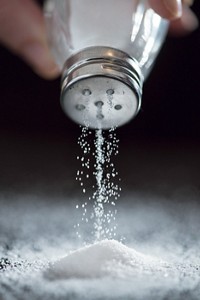Advertisement
Grab your lab coat. Let's get started
Welcome!
Welcome!
Create an account below to get 6 C&EN articles per month, receive newsletters and more - all free.
It seems this is your first time logging in online. Please enter the following information to continue.
As an ACS member you automatically get access to this site. All we need is few more details to create your reading experience.
Not you? Sign in with a different account.
Not you? Sign in with a different account.
ERROR 1
ERROR 1
ERROR 2
ERROR 2
ERROR 2
ERROR 2
ERROR 2
Password and Confirm password must match.
If you have an ACS member number, please enter it here so we can link this account to your membership. (optional)
ERROR 2
ACS values your privacy. By submitting your information, you are gaining access to C&EN and subscribing to our weekly newsletter. We use the information you provide to make your reading experience better, and we will never sell your data to third party members.
Biochemistry
Artificial sweetener triggers metabolic changes in rats
Acesulfame potassium causes more metabolome changes than either glucose or aspartame
by Celia Henry Arnaud
April 30, 2018
| A version of this story appeared in
Volume 96, Issue 18
Artificial sweeteners may be nonnutritive, but they can still affect metabolism. At the Experimental Biology meeting held last week in San Diego, Brian R. Hoffmann, a biochemist at the Medical College of Wisconsin, reported that acesulfame potassium changes the metabolome of rats whose normal diet is supplemented with the artificial sweetener, which is widely used in diet soft drinks. Rats received plain water or water sweetened with glucose, acesulfame, or aspartame, another artificial sweetener. After three weeks, Hoffmann and his team took a broad look at metabolites in the rats’ blood plasma using high-throughput mass spectrometry. Then Hoffmann’s team compared the diversity of metabolomes resulting from each sweetener. Acesulfame led to more distinct changes in the rats’ metabolomes than did the other sweeteners. By the end of the three-week study, acesulfame had accumulated in the rats’ blood, which suggests it overwhelmed the animals’ ability to clear it following chronic consumption. Hoffmann plans to perform longer studies and to include a wider variety of artificial sweeteners to further understand the implications of the metabolome alterations.



Join the conversation
Contact the reporter
Submit a Letter to the Editor for publication
Engage with us on Twitter